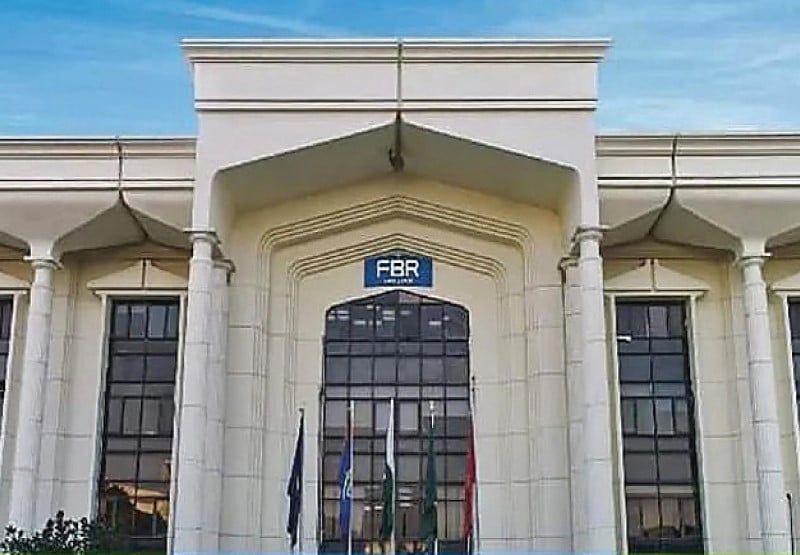
In an anticlimax to the Federal Board of Revenue (FBR) restructuring saga, the interim federal cabinet on Tuesday approved the overhauling of the tax machinery but minutes later was stopped by the Election Commission of Pakistan (ECP), which found the move in violation of the polls law.
Headed by caretaker Prime Minister Anwaarul Haq Kakar, the interim cabinet approved the summary for the restructuring of the FBR but decided that it should be carried out by the next elected government. Some cabinet ministers opposed the restructuring on the grounds that it was not the mandate of the interim setup and also because the FBR was performing well.
The approved restructuring was contrary to the manifesto of the PML-N that has promised to separate the customs department from the FBR and place it under a ‘to-be-created’ economy ministry.
However, according to the interim cabinet’s decision, the FBR will cease to exist and two new organisations -- the Federal Customs Board and Federal Inland Revenue (IR) Board – will be created. In addition, the newly formed bodies will be placed under the Revenue Division.
“The FBR’s restructuring has been approved by the [interim] cabinet. Now it will be up to the next parliament to make the requisite changes to give effect to its restructuring,” interim PM Kakar told The Express Tribune.
To a question, the interim premier said the caretaker government had made its intent clear to reform the FBR and now it would be up to the elected government whether it wanted to carry it forward or not.
To another query, Kakar replied that the FBR’s performance had improved in recent months because of the caretaker government’s focus on it.
The FBR surpassed its first half revenue collection target by a wide margin, helping avoid the introduction of a mini-budget.
However, the moment the news about the caretaker cabinet’s approval for the FBR’s restructuring came out, the ECP dispatched a letter to the secretary to the interim premier, directing him to stop any overhauling exercise.
“I have been directed to convey that the caretaker Prime Minister of Pakistan may be advised not to go for major reforms in FBR and keep it pending for the consideration by the new to-be-elected government by virtue of the General Elections 2024,” the ECP letter read.
The commission further wrote that the “planned overhauling of FBR attracts the statutory provisions (of the Elections Act, 2017) and the matter falls under major policy decision, which is the prerogative of the elected government”.
According to Section 230 (2a) of the Elections Act, the caretaker government “shall not take major policy decisions except on urgent matters”.
Similarly, Section 230 (2b) of the Act states that interim set-up “shall not take any decision or make a policy that may have effect or preempt the exercise of authority by the future elected government”.
Interim Finance Minister Dr Shamshad Akhtar had initiated the FBR restructuring exercise, which many cabinet members opposed on the grounds that the interim set-up lacked the mandate to do so. They also pointed out that the plan did not address the issues of corruption as well low tax and filer bases in the country.
Even the caretaker law minister told the cabinet that the interim government did not have the legal mandate to legislate on the FBR restructuring.
The interim finance Minister wanted to promulgate a presidential ordinance to give effect to these legal changes.
Last week, the interim cabinet had decided that in view of its constitutional and legal mandate, the caretaker set-up “would only carry out the groundwork for the FBR’s structural reforms” keeping in view the public interest, but legislation to bring these reforms into effect would be left to the new elected government.
The interim cabinet’s decision to split the FBR into two new organisations and three new boards is unlikely to be implemented.
The cabinet was informed that the scope of restructuring was wide-ranging.
Its implementation will require amendments to various tax statutes and related laws, enactment of legislation for the two new organisations, and changes in the respective rules as well as the Rules of Business 1973.
The cabinet was further told that changes would be required in connection with the budget and expenditure allocations for the two organisations, establishment of new administrations, and division of the existing assets between them.
“The legal and administrative formalities would be completed as soon as practicable,” read a sentence in the cabinet summary that did not elaborate much.
According to the interim cabinet’s decision, a new Federal Policy Board will be reconstituted chaired by the finance minister.
The Tax Policy Board with the support of the Revenue Division secretary will have a new mandate. It will play an instrumental role in the formulation of the tax policy, coordinating an effective litigation defence system, assignment of revenue targets, and coordinating all strategic issues among the stakeholders.
The cabinet decided that the customs and IR organisations will be separated, with each headed by a director general to be appointed by the federal government from their respective service cadres for a fixed tenure.
The two establishments will be the attached departments of the Revenue Division. The DGs will have administrative, financial and operational autonomy including budgeting as well as posting and transfers for their respective establishments.
The cabinet did not approve that the Revenue Division secretary will be appointed from the service cadre of customs or the IRS. Rather, they can be appointed from any service cadre.
Both the Custom and IR oversight boards will be chaired by the finance minister. This is contrary to the recommendation of the cabinet committee of appointing the finance and customs secretaries as the heads of these boards.
The interim prime minister decided that tax consultants would not be appointed as members of the oversight boards.
Both the oversight boards will include finance, revenue and commerce secretaries; the National Database and Registration Authority (NADRA) chairman, and domain experts.
The two board members will be rigorously subjected to predefined fit and proper criteria and have domain knowledge required on tax policy expertise with no conflict of interest. They will be selected based on their integrity.
Both the customs and IR DGs will act as the secretaries to their respective boards.
The customs organisation will act as a withholding agent for the administration of IR taxes at the import stage for smooth functioning and continuity of operations.
All matters related to international taxes; valuation of goods and assets; IT and digitisation, policies in connection with the data exchange between the two DGs, and human resource will also be placed in Revenue Division.
Decisions will be made jointly based on consultations with both the DGs.
The determination of value for imported goods through valuation rulings will be carried out by a committee comprising equal representation from customs and IR and placed before the Revenue Division.
The cabinet also cut the projected an increase in the tax-to-GDP ratio from 22% in 2027 to 18% of the GDP in 2029. The current ratio is 8.5%.


-(14)1720679028-0/(image-blakelively-on-Instagram)-(14)1720679028-0-165x106.webp)

1731028448-0/Untitled-design-(37)1731028448-0-165x106.webp)
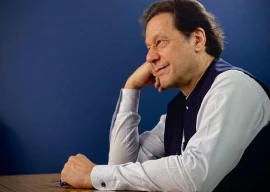
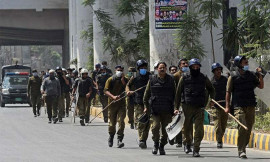

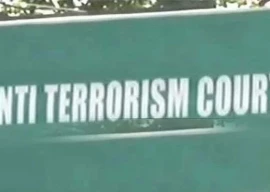
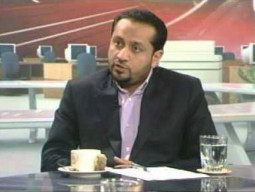






COMMENTS
Comments are moderated and generally will be posted if they are on-topic and not abusive.
For more information, please see our Comments FAQ